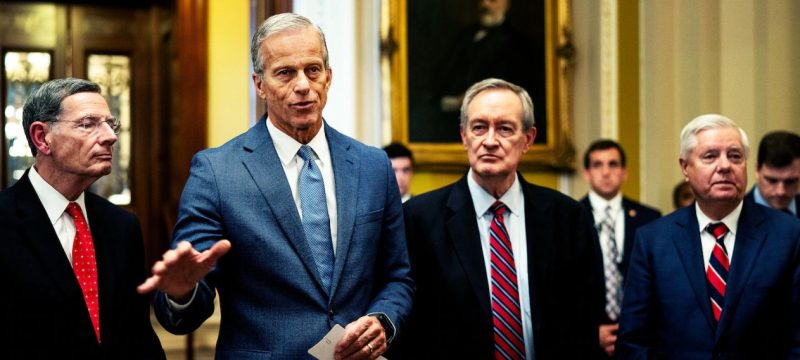The U.S. Senate, controlled by Republicans, narrowly passed President Donald Trump’s major tax cut and spending bill on Tuesday. The legislation, which passed 51-50 with Vice President JD Vance casting the tie-breaking vote, includes significant tax reductions, increased funding for the military and immigration enforcement, and deep cuts to social programs such as Medicaid and food assistance. If passed in the House of Representatives, the bill would also raise the national debt ceiling by $5 trillion and increase the federal deficit by an estimated $3.3 trillion.
The bill now moves to the House for final approval, where it faces resistance from both conservative and moderate Republicans. House Speaker Mike Johnson is aiming to get the bill passed before the July 4 holiday, but several GOP members have raised concerns over certain Senate changes.
Read more: Netanyahu to Visit Trump at White House as US Pushes for Gaza Ceasefire
These include expanded Medicaid cuts, the absence of additional tax relief for high-tax states like New York and California, and the overall impact on healthcare and food assistance for low-income Americans.
The bill extends Trump’s 2017 tax cuts and offers new tax breaks on overtime and tips. It removes many of former President Biden’s green energy incentives and aims to root out what Republicans describe as “waste and abuse” in welfare programs. However, critics argue the plan would strip essential services from millions, with the Congressional Budget Office warning that nearly 12 million people could lose health coverage.
To secure Senator Lisa Murkowski’s vote, the final Senate version included more food aid for Alaska and $50 billion in support for rural hospitals facing Medicaid cuts. Despite these additions, the bill has revealed deep divisions within the Republican Party and has been widely condemned by Democrats. Senate Majority Leader Chuck Schumer called it a disgrace, accusing Republicans of harming vulnerable Americans for the benefit of the wealthy.
Tech billionaire Elon Musk, once a supporter of Trump, has also criticized the bill’s massive cost and threatened to fund opponents of lawmakers who back it. The House vote is expected to be extremely close, with Democrats united in opposition and Republican factions deeply divided over the bill’s content and implications.









